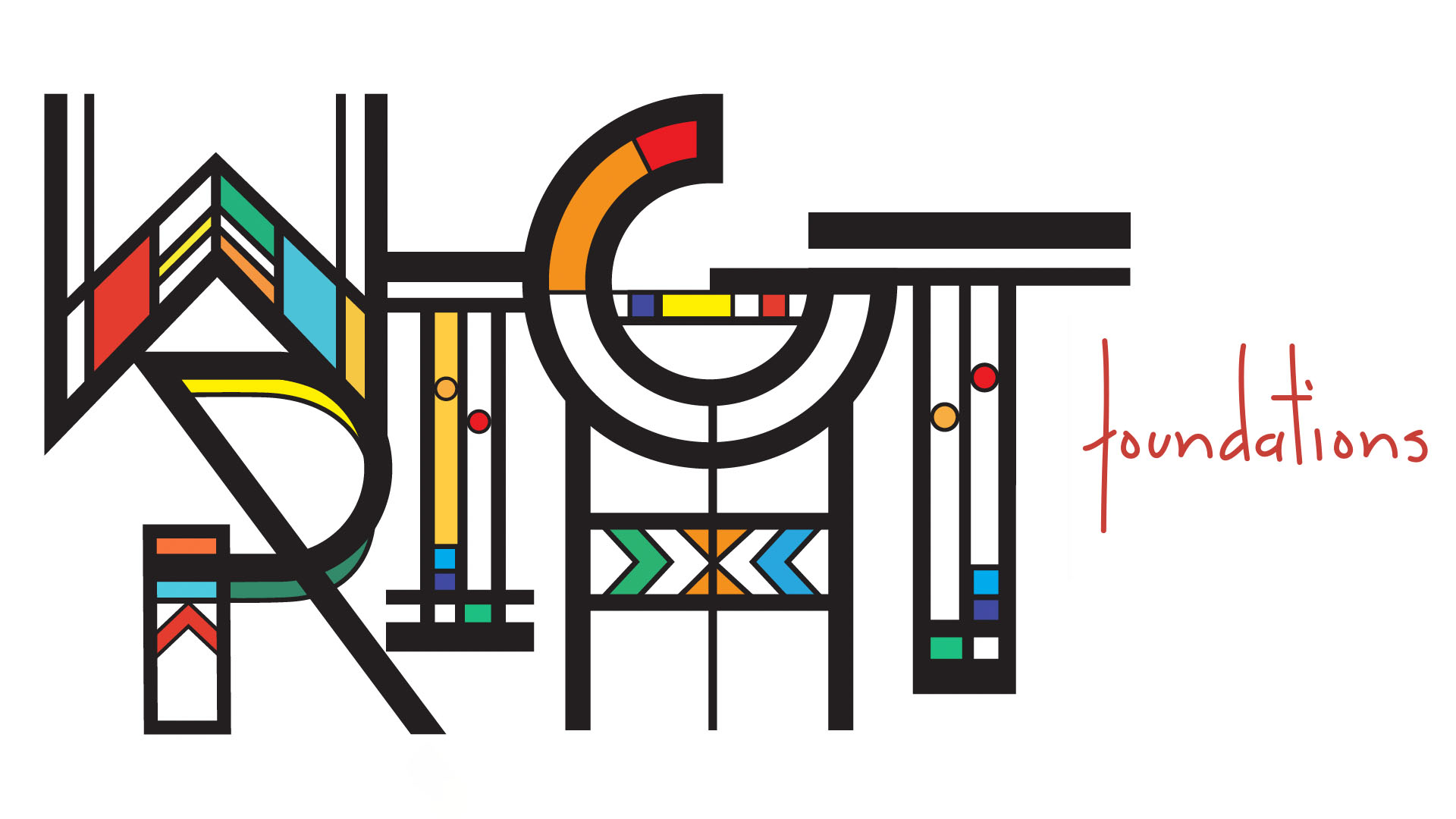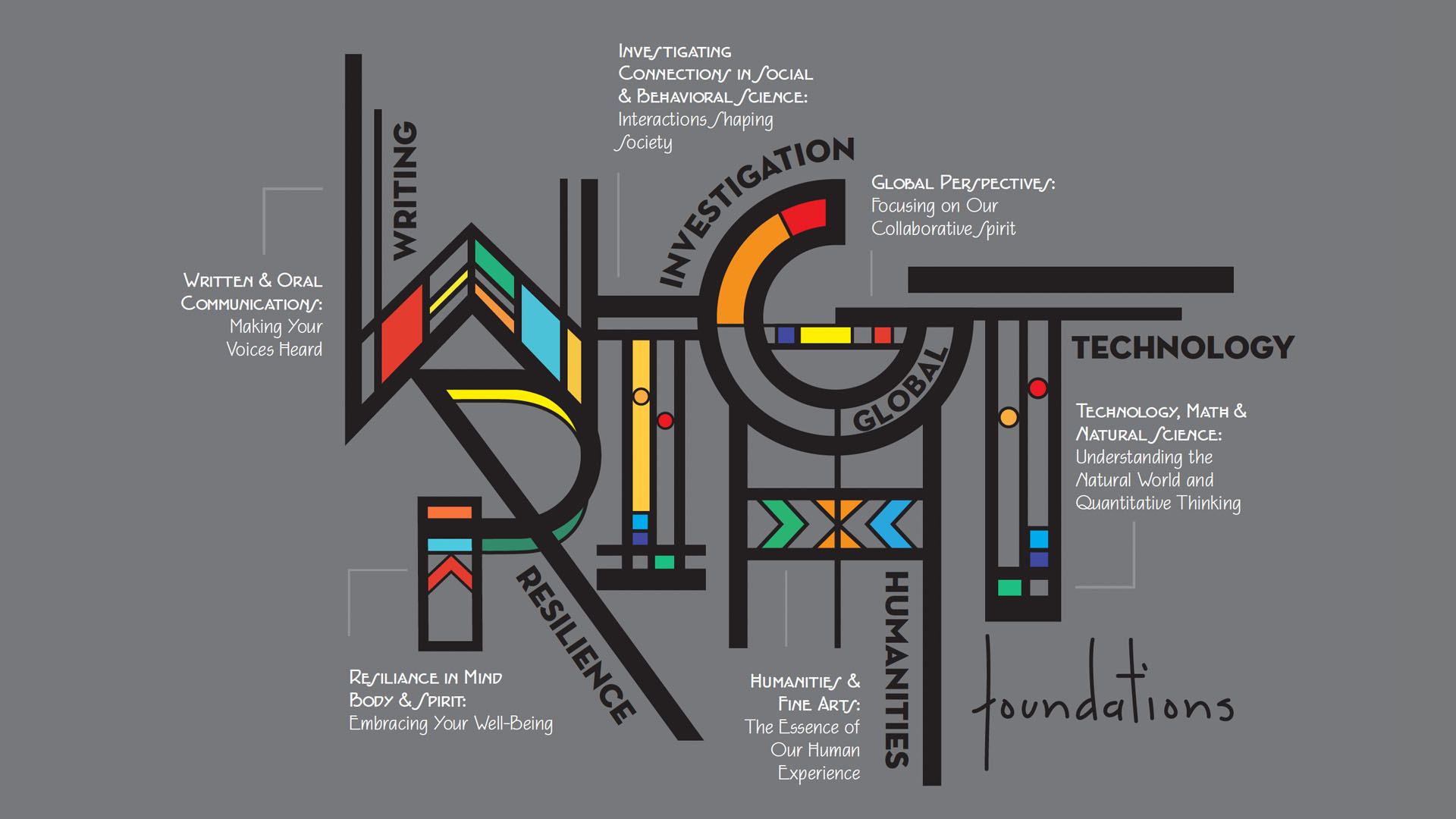
Wright Foundations: The Right Way to Begin
Florida Southern’s general education curriculum, called WRIGHT Foundations, ensures students challenge themselves academically, developing the essential skills for a bright and successful future.
WRIGHT Foundations is intentionally designed to help students embark on a transformative journey that equips them not only with professional expertise but also with a deep sense of empathy, global and cultural awareness, and prepares them to make positive and consequential impact in the world.
Florida Southern College’s WRIGHT Foundations is a 34 credit-hour curriculum grounded in the understanding that the challenges and opportunities encountered by our students are seldom defined to a single academic discipline.

Learning Outcomes
Through FSC’s WRIGHT Foundations Curriculum, graduates will have the ability to:
W: Make voices heard through courses that focus on learning the art of Writing and speaking.
R: Recognize Resilience in Mind, Body, and Spirit as an important approach to nurturing mental, physical, spiritual, and emotional well-being.
I: Understand human behaviors, societies, and interactions by focusing on Investigating Connections in Social and Behavioral Sciences.
G: Strengthen awareness of Global perspectives as the cornerstone of empathy, diplomacy, inclusion, and the collaborative spirit needed to understand and address the world’s most pressing challenges. •
H: Ignite imagination, challenge assumptions, and discover the threads that form connections through the study and appreciation of Humanities and Fine Arts.
T: Encourage a scientific mindset through the study of Technology, mathematics, and the natural sciences.

Course Requirements
Students will take the required number of credit hours from the following six groupings. See Academic Catalog for course descriptions.
Written and Oral Communication: Making Your Voices Heard (8 credit hours)
Effective communication skills are essential for success in both personal and professional life. Clear written and oral communication allow us to express our ideas, thoughts, and emotions accurately, fostering better understanding among peers, colleagues, and diverse audiences. These skills also enable us to participate actively in discussions, collaborate efficiently, and articulate complex concepts in a comprehensible manner. Students will take four hours in Written Communication and four hours in Oral Communication.
Written Communication
Program Outcome: Students will compose clear, concise, and well-structured written communication; apply correct grammar, punctuation, and spelling; demonstrate mastery of elements of good writing; organize ideas around a thesis or focal point using relevant technologies; and adapt writing styles and content to suit different audiences and purposes.
Oral Communication
Program Outcome: Students will prepare and deliver polished, logically organized, confident presentations through research, practice, and the use of relevant-presentation technologies or techniques for multiple audiences and settings.
Resilience in Mind, Body, and Spirit: Embracing Your Well-Being (2 credit hours)
Resiliency and Wellbeing focuses on fostering resilience, a vital mental faculty strengthened with each adaptation to life’s changes and challenges. A resilient mindset helps navigate through stress and instills a deep sense of safety, grounding, and trust in mind, body, and spirit amidst external turmoil. Practicing resilience entails maintaining a clear mind, developing self-compassion, and engaging in deliberate self-care, which collectively contribute to an enduring sense of wellbeing.
Students will take two credit hours in this category.
Program Outcome: Students will demonstrate knowledge of practical skills and habits to promote personal lifelong health and wellness encompassing a variety of physical, spiritual, financial, emotional, and/or social dimensions, enabling students to lead fulfilling lives.
Investigating Connections in Social and Behavioral Sciences: Interactions Shaping Society (4 credit hours)
Investigating Connections in the social world involves the integration of knowledge and methodologies from various social science disciplines to gain a more comprehensive understanding of social phenomena, behaviors, and issues. These connections also expose students to a broader range of perspectives and approaches, helping them develop a more holistic understanding of how various disciplines interact to shape society.
Students will take four credit hours in this category.
Program Outcome: Students will demonstrate knowledge of human and social behavior and their historical evolution, employing various research methods to investigate complex social issues, analyze and interpret the past, and shed light on contemporary societal issues.
Global Perspectives: Focusing on Our Collaborative Spirit (4 credit hours)
The category of Global Perspectives encourages students to understand the multiplicity of cultural forces that shape our world through the study of cultures, gender, sexuality, race, religion, class, ethnicities and languages with special focus on their contributions, differences and perspectives. This awareness is the cornerstone of empathy, ethics, spirituality, diplomacy, diversity and inclusion, the human condition, and the collaborative spirit needed to address the world’s most pressing challenges.
Students will take four credit hours in this category.
Program Outcome: Students will use discipline-specific methodologies to critically evaluate and interpret information and articulate knowledge from diverse perspectives, identities, and sources encompassing social, political, economic, personal, and cultural structures and historical developments.
Humanities and Fine Arts: The Essence of Our Human Experience (8 credit hours)
The humanities and fine arts are the mirror that reflects the essence of human experience. They ignite our imagination, challenge our assumptions, and instill in us a sense of timelessness that transcends technological advancements. Through their study, we find the threads that connect us to history, philosophy, religion, and the rich tapestry of written and artistic creative expression. Students will take four credit hours in Humanities and four credit hours in Fine Arts.
Humanities
Program Outcome: Students will analyze texts, artifacts, or cultural expressions using appropriate methods, considering historical and cultural contexts, and effectively engage in discussions about human experiences, nature, society, and self.
Fine Arts
Program Outcome: Students will demonstrate factual knowledge of or expressive proficiency in creative works of art, literature, theater, dance, or music.
Technology, Math, and Natural Science: Understanding the Natural World and Quantitative Thinking (8 credit hours)
As a group of closely related and highly interdependent fields, Technology, Math and Natural Science (globally represented by the acronym STEM: Science, Technology, Engineering, and Mathematics) are academic and professional disciplines that focus on understanding the natural world and applying the principles of mathematics and science for the betterment of society. These disciplines play a crucial role in alving innovation, economic growth, and technological advancement in diverse areas such as health care, manufacturing, agriculture, communications and space exploration.
Students will take four credit hours in Mathematics and four credit hours in Natural Sciences.
Mathematics
Program Outcome: Students will apply mathematical concepts, reasoning, and problem-solving skills to analyze and solve real-world problems across various disciplines, fostering quantitative literacy and critical thinking.
Natural Sciences
Program Outcome: Students will engage in scientific inquiry and examine empirical evidence to explore the natural world.